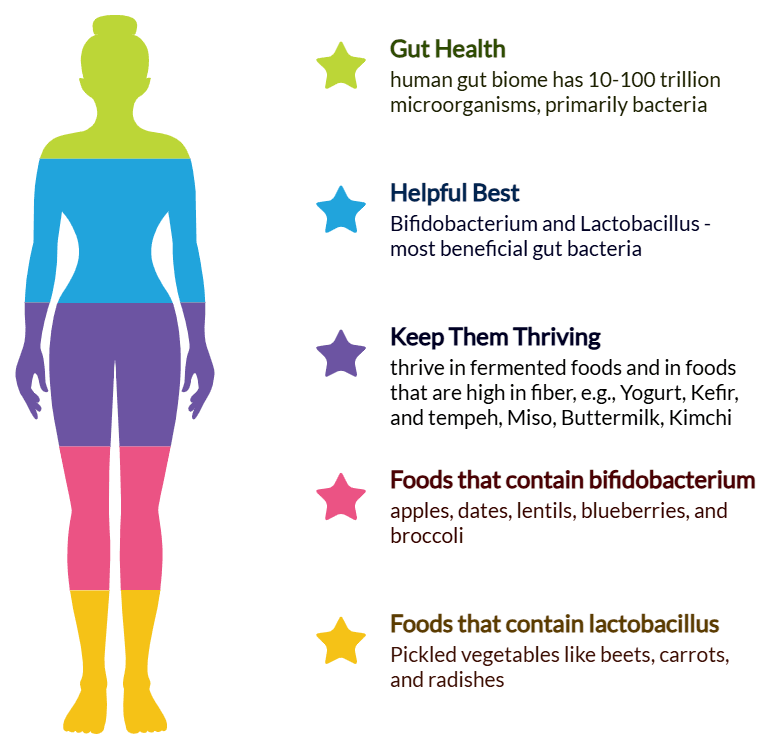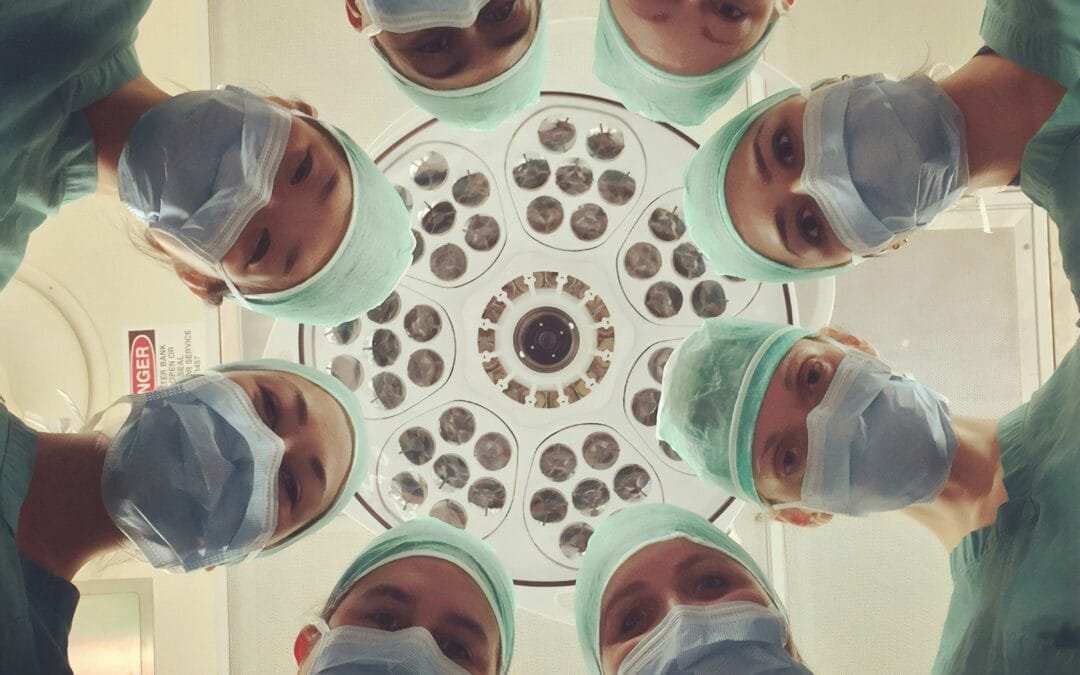Gut Health: Comprehensive Guide to Nourishing Your Microbiome
The world inside our digestive tract is the subject of discussion when we discuss gut health. It resembles a busy metropolis with billions of microorganisms, all of which are vital to our well-being.
In addition to aiding in food digestion and protecting us from dangerous bacteria, these gut bacteria also assist us maintain mental clarity and attention. To keep this city thriving, we need to feed these tiny inhabitants the right foods.
Imagine your gut as a garden that needs different seeds (foods) to grow various plants (bacteria). Each species of bacteria has its favorite food. For example, eating bananas can help feed the good bacteria that love dietary fibers, making your garden lush and diverse. This diversity in your gut garden is key to keeping you healthy and happy.

Understanding the Essentials of Gut Health
To get the basics of gut health, think of your digestive tract as a long winding river. Along this river, there are different species of bacteria that help break down the food we eat. Keeping these bacteria in your gut happy means the body is happy and everything works smoothly, helping our body absorb nutrients and get rid of waste.
Defining the Gut Microbiome and Its Importance
Our gut microbiome is like a bustling city inside our digestive tract, where trillions of bacteria live. These tiny residents are super important because they help digest our food, protect us from bad germs, and even talk to our brain. Keeping this city healthy is key to our overall well-being.
Support to the Digestive System
Our digestive system loves help from our gut bacteria, especially when breaking down tough bits in our food like dietary fibers. These fibers can’t be digested by our body alone. So, bacteria step in to break them down into short-chain fatty acids, which our body then uses as energy. It’s like having tiny helpers in our gut turning what we can’t eat into something very useful.
Contributions to the Immune System
Did you know that the bacteria living in our gut also help keep us from getting sick? These gut microbes are like tiny soldiers, training our body’s immune system to tell apart the good guys from the bad guys. This means we’re better protected against germs that could make us ill.

Influence on the Nervous System
Our gut and brain are best buddies, thanks to the gut microbes and something called the gut-brain axis. This special connection lets our gut bacteria chat with our nervous system, influencing how we feel and think. For example, producing short-chain fatty acids can even help keep our mood bright.
Interaction with the Endocrine System
The bacteria in our gut also play a part in controlling our blood sugar, which is super important for preventing diseases like type 2 diabetes. They help by making the gut lining stronger and reducing insulin resistance, which means our body can manage sugar better.
Recognizing Signs of an Unhealthy Gut
Keeping our gut healthy is important. But how do we know if it’s not? Signs like feeling upset in our stomach often or getting sick a lot can be clues that our gut garden might need some attention.
Digestive Disturbances and Food Intolerances
When our gut isn’t happy, we might have trouble digesting certain foods, leading to gas or bloating. This can happen when we don’t have enough good bacteria to help break down dietary fibers, which can make us feel pretty uncomfortable.

Skin Irritation and Autoimmune Conditions
Sometimes, if our gut microbiome is affected, it can lead to skin problems like eczema or even trigger autoimmune conditions, where our body’s defense system gets confused and starts attacking itself. This shows how important the microorganisms living in our gut are for keeping our whole body healthy.
Unintentional Weight Fluctuations and Fatigue
If you’re suddenly losing or gaining weight without trying, or you’re always feeling tired, it could be a sign your gut health needs a checkup. An unhappy gut can affect how we absorb nutrients, and our energy levels can take a hit.
How Diet Influences Gut Health
What we eat plays a huge role in keeping our gut bacteria happy and healthy. By choosing the right foods, we can feed the good bacteria and help them fight off the bad ones.
The Role of High Fiber Foods and Garlic in Gut Health
Consuming a lot of foods high in fiber, such as whole grains and vegetables, and include garlic in our meals can have a positive impact on our gut health.These foods assist the beneficial bacteria flourish and maintain the health of our digestive system.
The Benefits of Fermented Foods and Probiotics
Fermented foods and probiotics are like superfoods for our gut bacteria. Foods like yogurt, kefir, and kimchi can help increase the number of good bacteria in our gut, making our digestive system happy and healthy.
How Greek Yogurt Promotes a Healthy Gut
Greek yogurt is like a superhero for our gut. It’s packed with good bacteria called probiotics. These little helpers live in our gut and help it stay healthy. When we eat Greek yogurt, we’re giving our gut a boost, helping it fight off bad bacteria and keep things moving smoothly. So, think of Greek yogurt as a tasty tool to keep our gut in top shape.
Strategies to Incorporate Beneficial Foods into Your Diet
Adding foods that are good for our gut doesn’t have to be hard. First, let’s talk about fermented foods. These include things like sauerkraut, kimchi, and kefir. They have “live and active cultures” that help our gut health. We can also try eating more bananas, garlic, and onions. They’re not just tasty; they’re also great for our gut. So, next time you’re making a sandwich, maybe add some sauerkraut or have a side of kimchi. It’s a simple way to make our meals gut-friendly.
Modern Lifestyle and Gut Health
Our modern life can sometimes make it tough for our gut to stay healthy. We eat fast, choose easy meals that might not be the best for us, and we’re always on the go. This can lead to our gut not being as happy as it could be. But, by paying attention to what we eat and how we live, we can help our gut stay healthy. It’s all about making small changes, like choosing fruits and vegetables over processed foods, that can make a big difference.
Identifying and Addressing Food Intolerances
Certain foods may make some of us feel less than well. This can be the result of dietary intolerances. Dairy products, gluten, and eggs can occasionally create issues. If we notice that we feel sick, get stomach aches, or have other problems after eating these foods, it might be a sign. We can try eating less of these foods and see if we feel better. It’s like being a detective, figuring out what foods make us feel good and which ones don’t.
The Impact of Stress and Sleep on the Gut Microbiome
For a healthier gut, getting enough sleep and reducing stress are essential. Stress and poor sleep quality can cause digestive problems. It is so crucial to relax and obtain enough sleep.
Practical Tips for Lowering Stress and Improving Sleep
Lowering stress and getting better sleep can help our gut feel better. Try doing things that make you happy and relaxed, like reading or playing outside. Also, make sure your room is cool and dark when you go to bed. This can help you sleep better. Remember, a happy gut starts with taking good care of your whole self, which means managing stress and getting enough rest.
Commonly Asked Questions About Gut Health
Let’s dive into some common questions about keeping our gut healthy and happy.

How Individual Gut Microbiome Varies
Every one of us has a unique set of bacteria in our gut, kind of like a fingerprint. What we eat, where we live, and how we live can change our gut bacteria. Some bacteria might be potentially harmful, but by eating right and living healthy, we can keep our gut health naturally in balance. It’s all about feeding the good bacteria and keeping the bad ones in check.
Responding to Fasting and the Role of Probiotics
Fasting and taking probiotics like dietary supplements can play a part in how our gut works. They can help boost our immune function and keep our gut healthy.
Can Eating Probiotics Change Your Gut Microbiome?
Yes, eating foods with probiotics can help change our gut for the better. It’s like sending in reinforcements to help the good bacteria win the battle against the bad ones. Eating things like Greek yogurt, kefir, and fermented foods is a tasty way to do this. So, by choosing snacks that are good for our gut, we can make a big difference in how we feel.
Signs to Watch for an Unhealthy Gut
There are a few signs that might tell us our gut isn’t as healthy as it could be. If we’re having stomach aches, feeling tired all the time, or noticing changes in our weight without trying, it could be our gut telling us it needs some help. Keeping our gut healthy with good foods and habits can help us avoid these problems.
Managing and Improving Your Gut Health
Let’s look at how we can keep our gut happy and healthy.
Daily Practices for a Healthy Gut
Every day, we can do simple things to help our gut health. It’s all about the small choices we make.
Stay Hydrated and Eat Slowly
Our guts benefit greatly from slow eating and drinking lots of water. Drinking water facilitates the smoother movement of all the things in our digestive tract. Additionally, eating slowly aids in improved food digestion for our bodies. Simply taking our time and drinking enough of water is like giving our digestive systems a helping hand.
The Importance of Prebiotics in Your Diet
Prebiotics are food for the good bacteria in our gut. Eating a variety of foods like garlic, onions, bananas, and whole grains can help feed these bacteria. Think of it like planting a garden in our gut, where these foods help the good bacteria grow and keep our gut healthy. So, let’s try to eat a rainbow of foods to keep our gut garden happy.
When to Seek Professional Help
If your stomach often feels upset, or if you have problems like diarrhea that doesn’t go away, especially after taking antibiotics, it might be time to see a doctor. Antibiotics can sometimes mess up the natural balance of gut bacteria, leading to problems like antibiotic-associated diarrhea. Your doctor can help figure out if your gut bacteria are out of balance and what to do about it.
Testing for and Treating Gut Dysbiosis
To find out if you have gut dysbiosis, which means your gut bacteria are out of balance, your doctor might ask you to take a test. This could involve giving a sample of your poop so they can check what kinds of bacteria are there. If they find something’s not right, they might suggest eating certain foods that help good bacteria grow, like bananas or yogurt. Sometimes, they might also suggest taking probiotics, which are like healthy bacteria in a pill.

How Healthcare Providers Approach Gut Health Conditions
When you see a doctor for gut problems, they’ll ask about your symptoms and what you eat. They know that foods like kimchi, kefir, and sourdough bread can help your gut because they have good bacteria. They might suggest adding these to your diet. If your problems are serious, they might do more tests to get to the bottom of it. They want to make sure your gut has the right kinds of bacteria, so you feel better.
A Healthy Gut for a Healthy Life: Final Thoughts
Maintaining gut health is like looking after a garden. Just as plants need water, sunlight, and good soil, our digestive system requires fiber-rich foods, hydration, and healthy options to thrive. Eating bananas, drinking kefir, and including sourdough bread in our diet are simple ways to nourish our gut. By preventing dangerous germs and aiding in nutrient absorption, these meals shield us from diseases like gastrointestinal tract illnesses and colon cancer. Remembering that the condition of our stomach affects everything, from mental health to emotional well-being, is essential.
When we take care of our gut, we’re doing more than just helping our digestive system; we’re boosting our immune system, reducing inflammation, and even improving our mood. A registered dietitian once explained to me that the lining of the gut, or the intestinal barrier, acts like a shield. It allows the positive things to enter while keeping the bad things out. Thus, by selecting foods high in fiber, such as kimchi and mushrooms, we may fortify this barrier function and help ward off conditions like rheumatoid arthritis, ulcerative colitis, and even stomach pain. Remember, a happy gut means a happy life. Gut health can be the cornerstone of your wellness even though it appears to be a physical aspect of our lives but the impact of gut health on our mental health, stress management, and physical wellness is more than an established fact. In our busy lives, to improve out gut health, we recommend the following:
Gundry MD® Bio Complete 3, 3-in-1 Probiotics for Gut Health, Probiotic Supplements for Digestion
Seed DS-01 Daily Synbiotic – Prebiotic and Probiotic for Women & Men – Digestive Health, Gut Health
PLease note that as an Amazon Associate, we earn from qualifying purchases at no additional cost to you. That helps us in maintaining the website and staff.
Gut health is such a simple aspect of life that once you get the charge you can help your friends and family.

